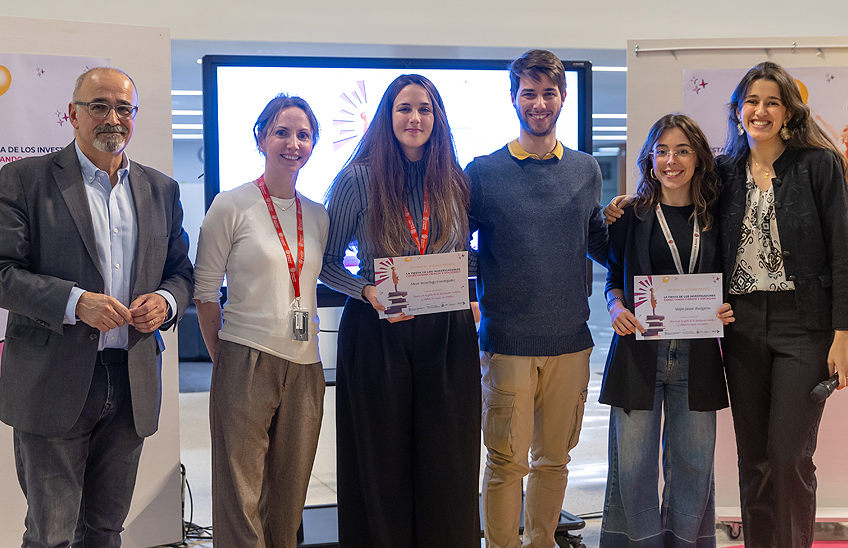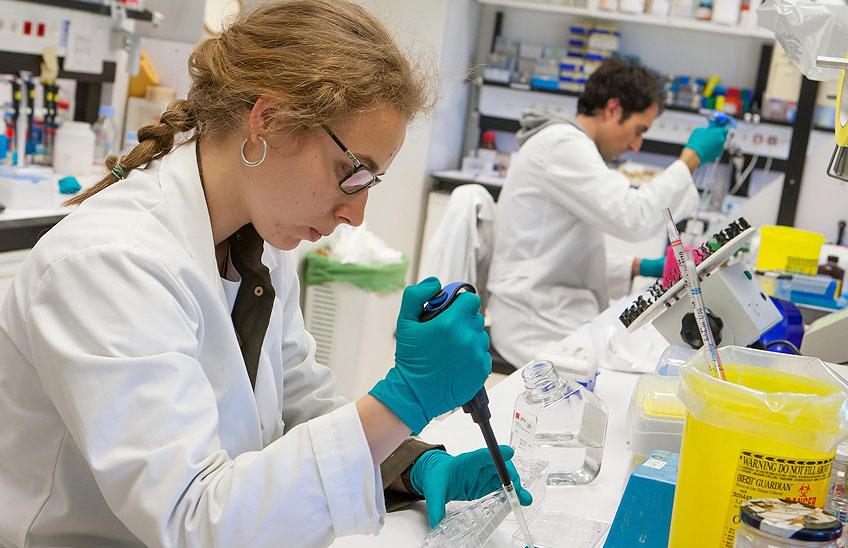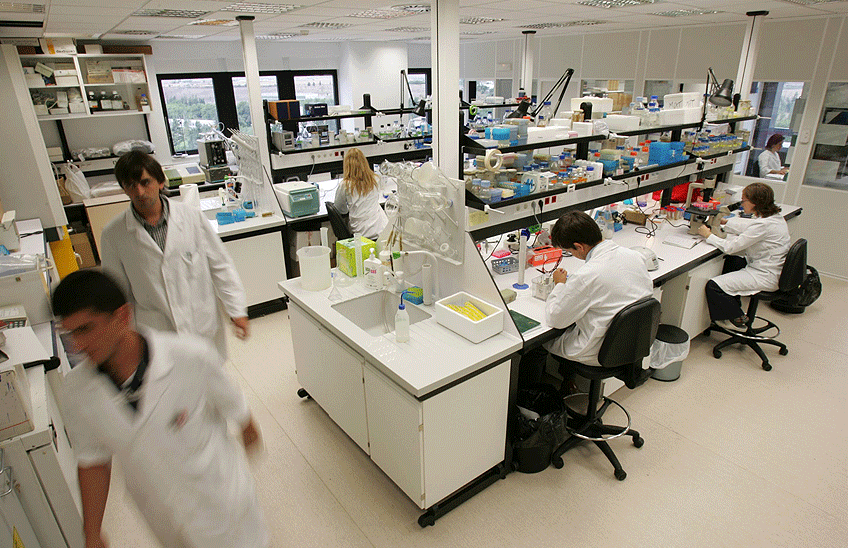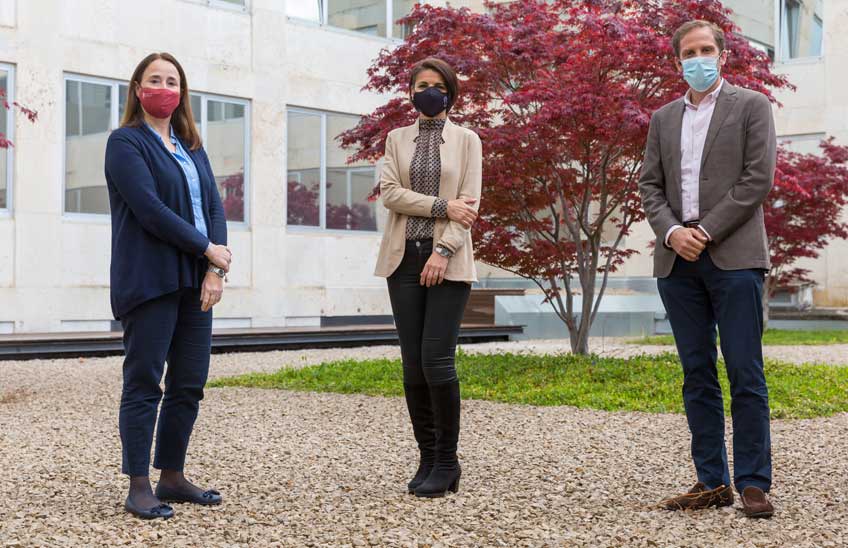The University leads a European project to promote meaningful reading in the university community.
The project Erasmus+ 'REMAP: Reading for Meaning and Purpose', involving universities in Slovakia, Latvia and the Netherlands and a network of schools, will provide educational resources for teachers.
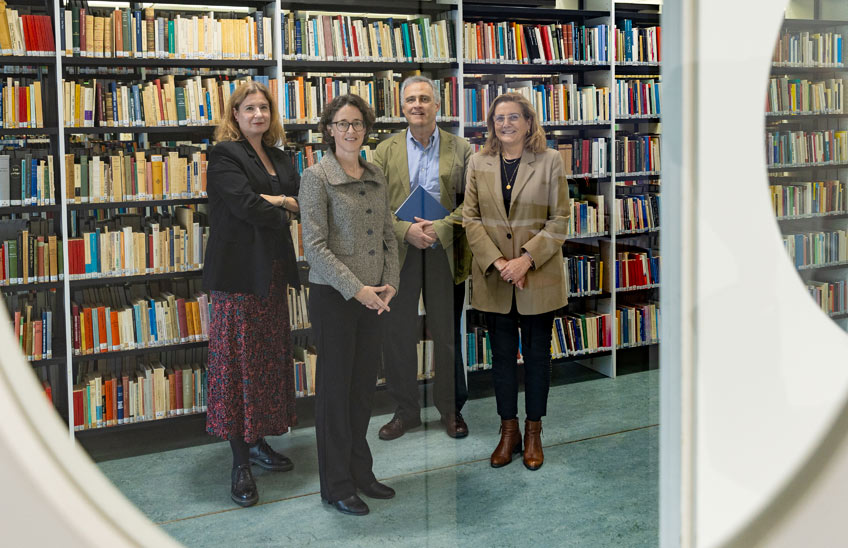
FotoManuel Castells<br>/El equipo investigador del proyecto REMAP de la Universidad de Navarra. De izquierda a derecha, Beatriz Gómez, Emma Cohen de Lara, Álvaro Sánchez-Ostiz y Rosalía Baena.
22 | 11 | 2024
Providing educational resources to teachers to encourage meaningful reading among European university students. This is the challenge undertaken by the project 'REMAP: Reading for Meaning and Purpos e', led by a team from th e Center for Civic Humanism at the University of Navarra, which has received Erasmus+ from the European Union. Institute for Culture and Society of the University of Navarra, which has received the financial aid Erasmus+of the European Union. The University of Amsterdam (Netherlands), the University of Latvia and the Bratislava International School of Liberal Arts (Slovakia), as well as the network of educational centers of the group COAS, especially the Biscayan high school Ayalde, are participating in the research, which will run until the fall of 2027.
The project claims meaningful reading as an ally to help students find meaning and purpose in their lives, making them more resilient and responding to their emotional, social and civic needs. Rosalía Baena, principal investigator and Vice President of Students of the University of Navarra, defines this subject of reading as that which "affects the experience of student, which can connect with its vital purpose , and which cannot always be taken for granted in today's university students".
In fact, there is growing concern in European universities about the difficulties in reading, comprehension and writing, as well as the problems of attention and emotional well-being experienced by student body. This status is not helped by the "professionalizing drift, with little humanistic training " experienced by many campus. "The student loses the intellectual background that humanistic subjects offer and that fosters the Education of character," Baena points out. Although some European universities develop transversal programs, such as the Core Curriculum of the University of Navarra, with humanistic knowledge and reading as the cornerstone, they are not present in all of them.
With REMAP, they aim to "achieve life long readersautonomous readers who consider reading as part of their lives, at a professional, staff and leisure level and as source of meaning and purpose. This way of reading and, therefore, of learning, is an essentialtool for a good university student". To achieve this goal, the project will develop both a theoretical body and pedagogical practices related to meaningful reading during the university stage.
As a result of this research, educational materials will be created and made available to university and secondary school faculty . They will publish a digitalguide on meaningful reading 'Meaningful Reading', which will bring together pedagogical approaches, good reading practices for the classroom and an anthology of texts organized by topics of interest (coexistence, ecology, social and cultural diversity...). They will also design a generalistsubject on Reading for Meaning and Purpose, where university students of any Degree can acquire intellectual skills and integrate reading into their daily lives; and a training program for university teachers interested in teaching this subject in the first years of university. The project also includes the Reading Mentors activity, a service learning program that has already begun in the School of Communication of the University of Navarra under the direction of Professor Beatriz Gómez, where a group of students from the upper grades work with first year students to improve their reading skills through different dynamics.
The partnership between these universities from four European countries "will provide an enriching exchange with different pedagogical approaches, as they come from different university traditions". This interdisciplinary and multicultural character will also be reflected in the anthology, which will not only bring together texts from the countries of origin, but from all five continents. "The works must appeal to today's young people, be accessible and connect with them. It is a selection that we will be updating." language And, although the project 's lingua franca is English, all the materials will be translated into the languages of the countries involved.

